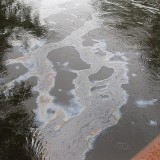Sometimes big stories go relatively unnoticed, as this one has for months. I’m indebted to Les Leyne of The Victoria Times Colonist and the University of Victoria Environmental Law Centre for this information. Renowned economist and former ICBC CEO Robyn Allan has also worked hard to bring this matter to the fore.
The Joint Review Panel is examining the proposed Enbridge Pipeline and the province of BC, unlike the province of Alberta, will not be at the table as a Government Participant. BC is an intervenor, which permits it to be there and open to questions from the Panel, but not to call evidence which would, of course, permit cross-examination so the Panel would have the full picture as to how British Columbians, or at least their government, feel about this project.
The government could still have filed evidence before the JRP as late as last January but decided not to do so. Yet – and get this – in May of this year, Premier Clark said that her government is still undecided as to whether it will call evidence, even though it abandoned that right 4 months before. Either Premier Clark didn’t know about this situation – very difficult to believe – or deliberately misled the House. Ms. Clark really has no excuse, especially since Robyn Allan raised this issue in mid-April with an open letter to the premier which received a reasonable amount of attention at the time.
This position of the Clark government has posed a procedural problem for the JRP. First Nations, which have registered as governments, want documents in the possession of the government and the JRP; with BC only an intervenor, it may not have to deliver them up.
This position was surely not taken without a full assessment of the facts by Clark and her tattered cabinet. Why weren’t these critical issues put before the general public which would have, of course, brought pressure on the province to register as a Government Participator.
What the hell does Clark have to hide? Why wouldn’t she say, “let’s get fully involved and represent the people – let it all hang out?”
There are two possible reasons which probably intertwine.
First, she’s scared of the evidence BC would be forced to put forward for cross-examination. She knows that the public is much opposed to both the pipeline and consequent tanker traffic but she fears that if she permits evidence to be called, her corporate pals will be mad as hell and her election coffers will suffer accordingly.
The second reason is the HST. Prime Minister Harper and his government, including his BC lickspittles, supports the Enbridge pipeline – big time. Harper also has the chance to be kind to the Clark government next April when the HST comes up, just before the election. Premier Clark hopes that Harper will give her decent terms for BC pulling out but knows full well that if she pisses Harper off, that won’t happen.
I have no doubt that the vast majority of British Columbians would want to see the Province at the table with the same status as Alberta (which, of course, strongly supports Enbridge) and the various First Nations also seated as Government Participants.
The long and the short of it is that British Columbia will not present our case to the JRP, for raw political reasons. The issue is not what’s best for British Columbia but how does Clark best look after her political, ahem, ass.
The ability of British Columbians to be fully heard has been trumped by the fear of consequences inimical to the political fortunes of the Clark government.










